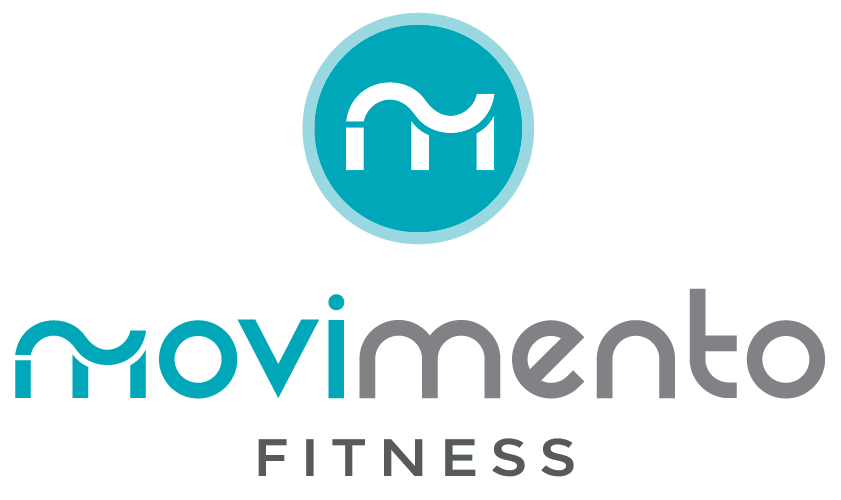As we age, it’s natural to become more conscious of our health and well-being. However, many people over 50 tend to fixate on weight loss as the primary means of improving their health.
If you are in midlife and have found yourself heavier than before you are not alone. As you head into our 50s hormone changes – specifically a decrease in estrogen and progesterone – cause us to accumulate fat, especially in our midsections. At the same time, age-related muscle loss means our bodies don’t burn as many calories or process blood sugar as efficiently. All of that, experts say, leads to an increased risk of obesity and with it a cascade of health complications such as high blood pressure and cholesterol, type 2 diabetes, sleep apnea, a decline in physical functioning and more.
So it is natural to assume that the best thing to do is to make a weight loss goal!
Right?
Not exactly. And here is why…
#1) Weight-Centric Healthcare Can Be Misleading
A conventional “weight-centric / weight-normative” approach — where health is only possible at a specific weight and weight and disease are directly related – has prevailed for many years. However, more and more research is showing that this approach is not improving health for the majority of individuals regardless of their weight.
With this approach, weight is being overemphasized for higher-weight people – with assumptions being made that they are unhealthy based on their weight. While assumptions are made that lower or average weight people are healthy because their body weight is lower.
This can lead to higher-weight individuals being consistently told to lose weight as the top priority to improve their health. If they struggle to lose the weight this can lead to feeling discouraged and giving up on exercising and healthier habits EVEN if those things could have dramatically changed their health and longevity into the future, regardless if their weight ever changed.
This can also mean that lower or average weight people are more likely to be labeled as “healthy” by health professionals and not encouraged enough to exercise and build healthy habits that will greatly serve them into their elderly years.
#2) You Can Lose Weight Without Improving Your Longterm Health
Weight loss goals can be achieved through dieting alone OR combining dieting with short term exercise (example only exercising for 4 weeks then stopping). Often people will lose some pounds and then stop healthier behaviours and become sedentary again because their weight loss goal was achieved.
The Problem? If you don’t exercise (OR if you only exercise when you want to shed a few pounds – and then stop) you are neglecting the immense benefits of regular exercise on your longterm health. These risks increase with age and you can be setting yourself up for a host of issues including:
- Muscle Loss: As people age, they naturally lose muscle mass, a condition called sarcopenia. Without regular exercise, particularly resistance training, this loss can accelerate. Preserving muscle mass is crucial for maintaining strength, balance, and mobility, which are essential for overall health and quality of life.
- Lower Bone Density: Weight-bearing exercises, such as walking, jogging, or resistance training, help maintain bone density. Neglecting exercise can increase the risk of osteoporosis and fractures, which are more common in older adults.
- Decreased Metabolism: Regular exercise helps regulate metabolism, which tends to slow down with age. Without physical activity, metabolic rate can decrease, making it harder to lose weight and easier to gain fat.
- Poor Cardiovascular Health: Exercise is essential for maintaining a healthy heart and circulatory system. Sedentary behavior increases the risk of heart disease, high blood pressure, and stroke, all of which become more prevalent as people age.
- Reduced Longevity & Quality of Life: Numerous studies have shown that regular exercise is associated with a longer lifespan. Neglecting exercise may shorten life expectancy and increase the risk of chronic diseases and disability in later years. Ultimately, neglecting exercise can diminish overall quality of life. It can lead to decreased mobility, independence, and vitality, making it harder to engage in daily activities and enjoy life to the fullest.
#3) Being Slightly Overweight In Older Age Can Actually Be Positive
Research has shown that being slightly overweight in your later years can actually have positive effects, such as increasing longevity and reducing fragility.
While being overweight or obese is generally associated with increased health risks, there are some potential positive impacts of being slightly overweight, particularly in older age such as:
- Higher Bone Density: Some studies suggest that individuals with slightly higher body weight may have higher bone density compared to those with lower body weight. This can be beneficial in reducing the risk of osteoporosis and fractures, which are more common in older adults.
- Greater Resilience in Illness: Older adults who are slightly overweight may have a better ability to withstand illness or injury compared to those who are underweight. The additional body weight can provide a reserve of energy and nutrients during times of illness or recovery.
- Increased Survival Rates: In certain populations, slightly overweight or mildly obese individuals may have higher survival rates compared to those with normal weight, especially in older age groups. This phenomenon, known as the "obesity paradox," has been observed in some studies examining outcomes in individuals with chronic diseases such as heart failure or kidney disease.
- Better Nutritional Reserves: Being slightly overweight can provide a buffer against malnutrition, which is a significant concern in older adults. It may indicate better nutritional reserves and a decreased risk of malnutrition-related complications.
- Reduced Risk of Frailty: Some research suggests that older adults who are slightly overweight may be at lower risk of frailty compared to those with normal weight or underweight. Frailty is a condition characterized by decreased physical function and increased vulnerability to adverse health outcomes.
- Improved Cushioning: Slightly higher body weight can provide additional cushioning around joints, potentially reducing discomfort or pain associated with conditions such as osteoarthritis.
It’s essential to note that these potential benefits are context-dependent and may not apply universally to all individuals. Moreover, the line between being slightly overweight and obese is fine, and excessive weight gain can lead to an increase in health risks, including heart disease, diabetes, and certain cancers.
So it is still essential you to strive for a healthy lifestyle through balanced nutrition, ongoing physical activity, and proper medical care as you age.
BUT having a few extra pounds on as you get older may not be such a big deal.
So what should be the goal to work towards?
Glad you asked…
So What Should Be Your Primary Goal Over 50?
Your Goal Should be to Build and Maintain Strength
Regardless of your weight, making your primary health goal to build and maintain strength over 50 will set you on the path for better longterm quality of life and health outcomes.
Studies indicate that strength is a better predictor of longevity than weight, highlighting the significance of prioritizing strength-building activities.
Making your goal to build and maintain strength encourages CONSISTENCY of health behaviours long-term. It is easy to say “I lost the 10 lbs I wanted to so now I can stop”. But to build and maintain strength you have to stay consistent longterm.
So how do you build and maintain strength? Through intentional strength training (or called weight-training/resistance training) at least 2x to 4x per week on going.
The proven health benefits of strength training are extensive and you can learn more about those benefits HERE.
And if you do have weight to lose... strength training alongside dietary adjustments is the most effective approach to achieving weight loss!
Here is why:
- Preservation of Lean Muscle Mass: When people lose weight, they often lose both fat and muscle. Strength training helps mitigate muscle loss during weight loss by stimulating muscle growth and maintenance. This is crucial because preserving lean muscle mass is essential for maintaining metabolic rate, strength, and overall functional capacity.
- Increased Calorie Expenditure: Strength training itself burns calories during the exercise session, but it also has a post-exercise calorie-burning effect. Additionally, building muscle through strength training increases the body's basal metabolic rate, leading to more calories burned at rest. This can facilitate weight loss by creating a calorie deficit.
- Improved Body Composition: While weight loss alone may result in a reduction in overall body weight, it doesn't necessarily guarantee improvements in body composition. Strength training helps reshape the body by reducing fat mass and increasing lean muscle mass. This leads to a more toned appearance and better overall body composition.
- Enhanced Metabolic Health: Combining strength training with weight loss has been shown to improve various markers of metabolic health, including insulin sensitivity, blood sugar control, and lipid profiles. These improvements can reduce the risk of chronic diseases such as type 2 diabetes and cardiovascular disease.
- Maintenance of Strength and Function: Weight loss, particularly rapid or extreme weight loss, can sometimes lead to a loss of muscle strength and functional capacity. By incorporating strength training into a weight loss program, individuals can maintain or even improve their strength, balance, and mobility, which are crucial for everyday activities and overall quality of life.
- Long-Term Weight Maintenance: Strength training helps preserve muscle mass during weight loss, which can be beneficial for long-term weight maintenance. Lean muscle mass is metabolically active tissue that helps support a higher metabolic rate, making it easier to sustain weight loss results over time.
- Psychological Benefits: Engaging in strength training can boost mood, confidence, and self-esteem, which can be especially beneficial during a weight loss journey. It provides a sense of accomplishment and empowerment as individuals see improvements in strength, endurance, and physical appearance.
By making your primary goal to building strength you'll improve your energy levels, bone density, metabolism, longterm quality of life, and longevity. Allow weight loss to be a side effect of focusing on building your strength.
Studies show that your STRENGTH is a better predictor of longevity than your WEIGHT.

How do you make strength training part of your life over 50?
That is where we can help!
Here at Movimento Fitness, we advocate for a shift in focus from weight loss to strength building for individuals over 50. By prioritizing strength training, you can enhance your overall health, increase longevity, and maintain vitality as you age. Whether your goal is to improve mobility, prevent age-related muscle loss, or achieve sustainable weight loss, building strength should be the cornerstone of your fitness journey.
Join us at Movimento Fitness and embark on a transformative fitness experience tailored to individuals over 50. Let’s prioritize strength and wellness to enjoy a fulfilling and active lifestyle for years to come.
Our Stronger For Longer 6 Week Program is specifically designed for those brand new to Movimento Fitness to get started with us and experience the benefits of strength training. We custom design your training programs and tailor everything around your fitness level and any health conditions or limitations you may have. Click the button below to learn more about the program:
Want to learn more about the topics discussed in this blog? Check out these references:



